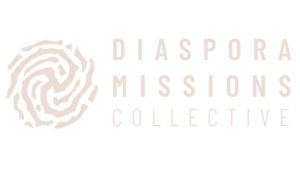The nations are right next door. A quick trip to the grocery store often means running into your Somali friend, talking to an Afghani woman over a table of green peppers or chit chatting with a Chinese man in the checkout line.
Many of the 50 million immigrants living in North America are from countries where western missionaries cannot live. This means most have not heard the gospel message.

Cities all around the world are home to diaspora people groups — those who have migrated or scattered from their indigenous homeland. Southern Baptists are collaborating to provide gospel access for these immigrants, refugees and international students. IMB Photo
Southern Baptists are growing in their understanding of the opportunities to be obedient to the Great Commission in their communities. The International Mission Board is committed to be present and active among the lost in the U.S. and in other nations.
“God’s been sending us the nations. So, we try to meet them right here,” Terry Sharp, IMB’s convention and network relations leader, encouraged. “It might be the only time they hear the gospel message.”
Reaching out to different cultures and nationalities can be intimidating but there is no need for churches to reinvent the ministry wheel. The Diaspora Mission Collective is gathering resources to mobilize and equip North American churches to engage people groups globally and locally. The DM Collective is a collaboration of the International Mission Board, North American Mission Board, Send Relief, Woman’s Missionary Union, the SBC Executive Committee, seminaries, state conventions and local associations.
Sharp explained the collective is not about one entity but about combining strengths and a heart for the diaspora people groups to help serve the local church. This unified mission is possible through the generous spirit of Southern Baptists and their faithful giving to the Cooperative Program.

The Diaspora Missions Collective is a global collaborative effort among Southern Baptists to empower local churches in reaching the nations within their community.
“We are all sensing that reaching the diaspora is so much bigger than any of us,” Sharp said. “To accomplish the task of providing gospel access, it’s going to take all of us working together to show and share the love of Christ among diaspora people. They could be the ones to take it back home to places missionaries cannot go.”
Diaspora means the movement, migration, settlement or scattering of people away from their indigenous homeland. These groups are often found in urban areas throughout the world, but not always. They come as immigrants, refugees or international students. Everything is new to them as they adjust to a new country and culture. They are often curious and more open to new ideas than at any other time in their life.
Jamie Naramore, the cross-cultural strategist for Arkansas Baptist State Convention, has seen this curiosity that leads to gospel belief played out over-and-over in his state: international students coming to saving faith in Jesus; new church plants among diaspora groups and churches reviving as their congregations become multiethnic.
“North America is only going to get more diverse across the board. Cities will get bigger. We know the flood gates haven’t opened yet,” Naramore said about the influx of diaspora. “We are getting prepared – whether it’s ministering to international students or immigrants. We are intentionally recognizing the nations in Arkansas and beyond.”
Naramore works with pastors to get them training and any resources — Bibles and discipleship material in different languages, information about culture and beliefs — that they might need. Soon, many of these resources, trainings and events will be available online at the DM Collective website.
The collective hopes to cast a vision in local churches to fulfill spreading the gospel among diaspora people groups. While Southern Baptists must continue to send missionaries overseas and within North America, Sharp and Naramore pointed out churches should not miss the opportunity to reach the nations living in their community and around the world.

